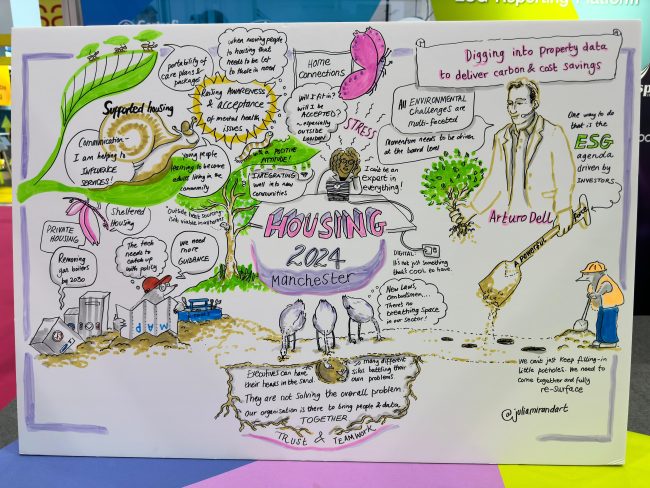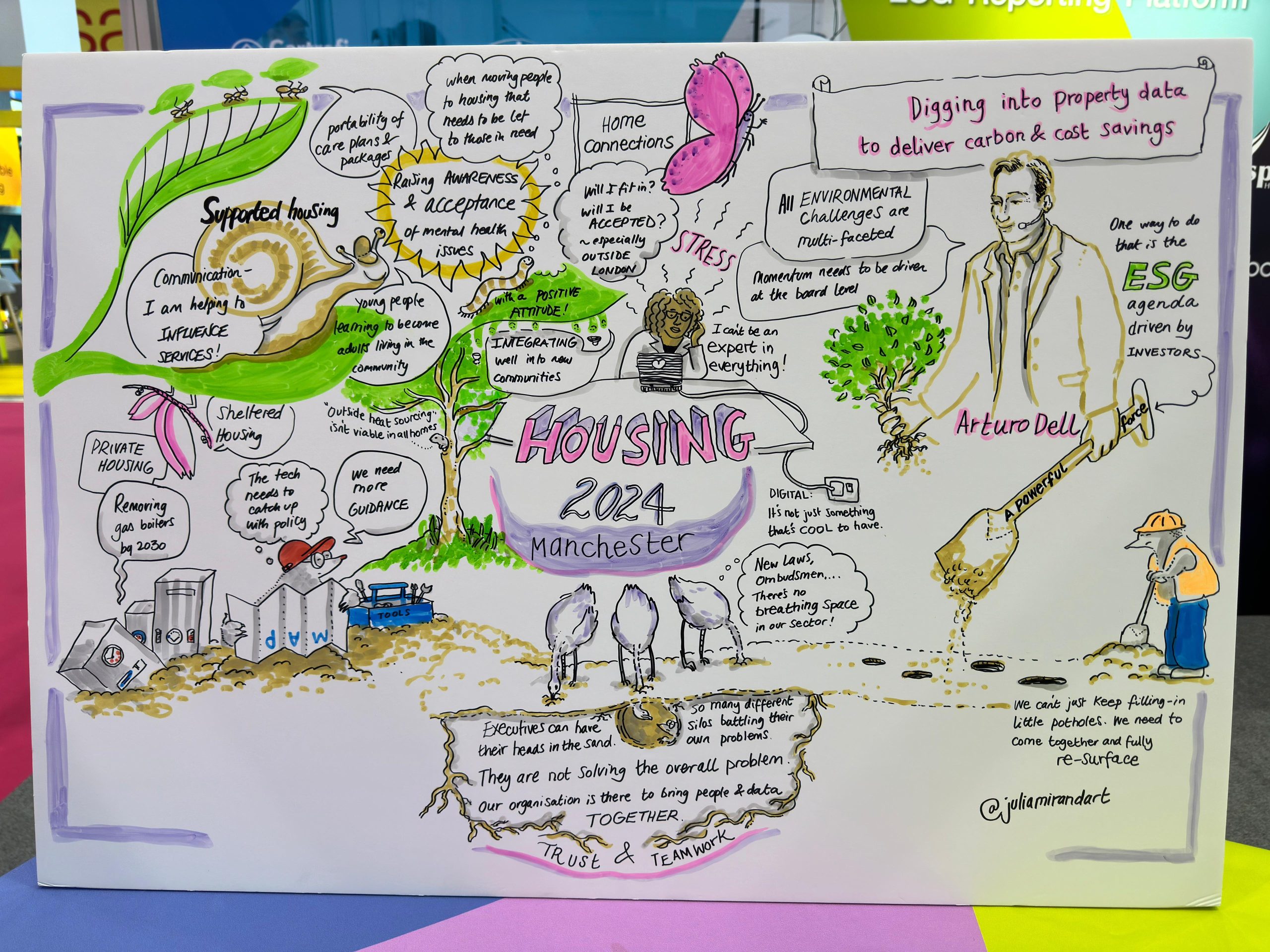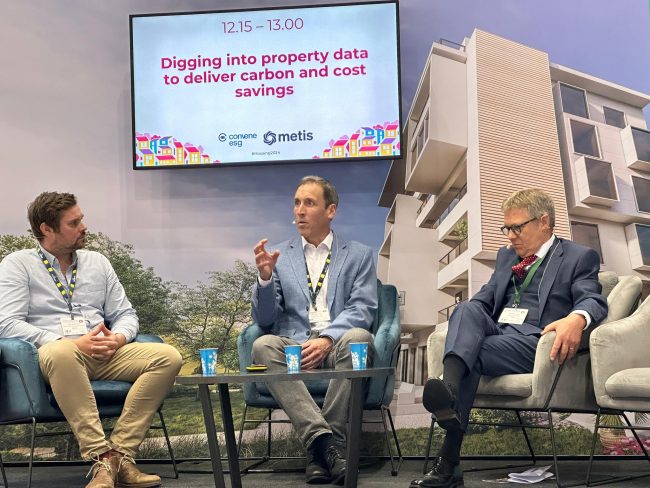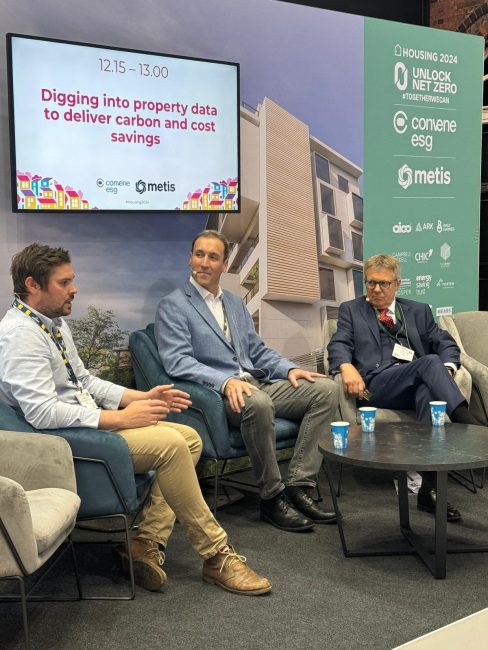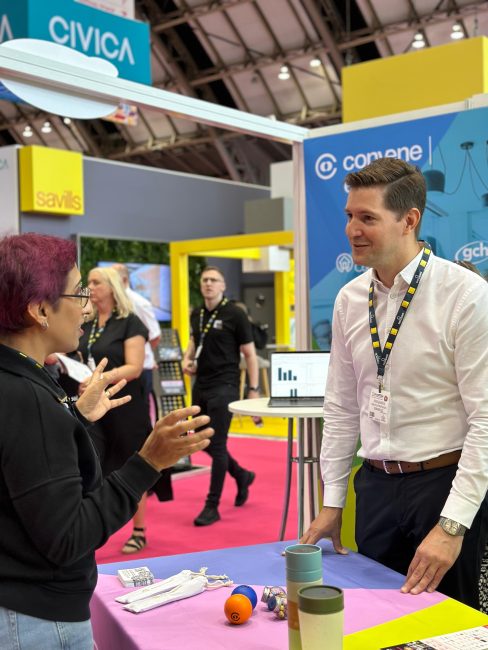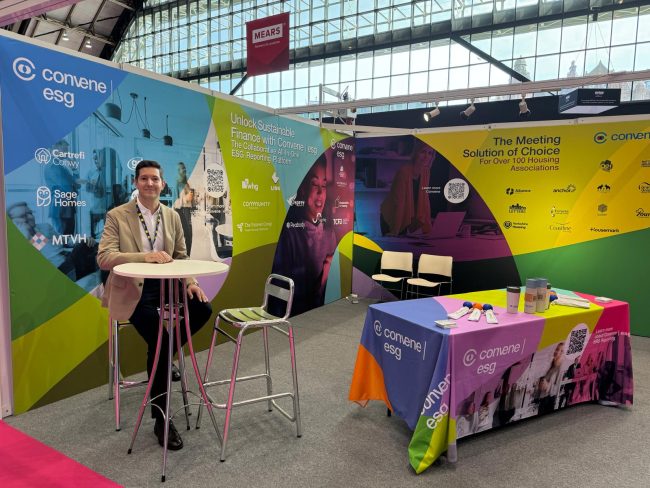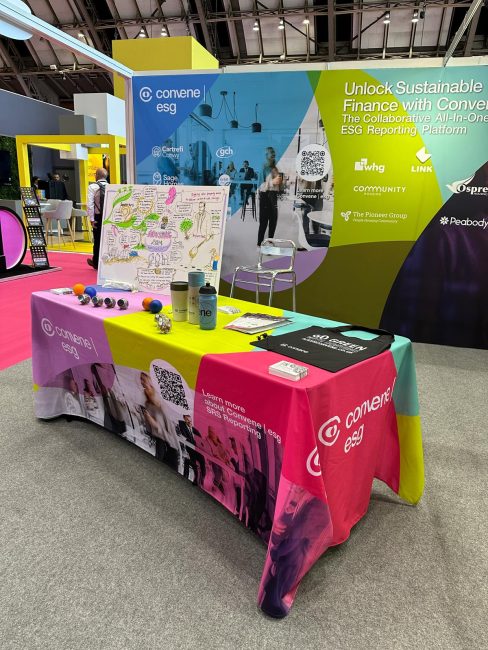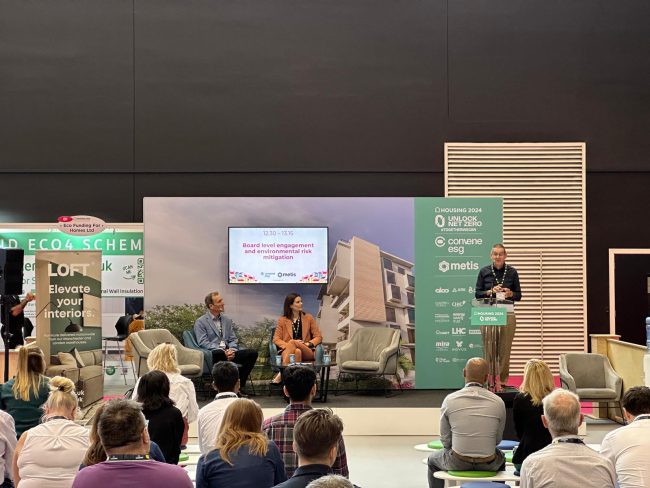On the 25th, 26th and 27th June, Convene sponsored the Housing 2024 conference. We’d like to thank Ocean Media, as well as all those in attendance, for making it such a crucial and engaging conference.
Between continuing economic uncertainty, an upcoming election, and heightened and changing regulations, now more than ever the sector needs to be able to come together to and connect over the issues that matter in Housing.
Over the three days, Housing 2024 gave attendees the opportunity to engage with their industry peers, network and discuss important topics such as tenant and resident expectations, rebuilding trust within communities, the future of living, compliance, and ESG and Net-Zero.
There were several different stages with important talks and sessions going on throughout the conference, and there were also several collaboration hubs, run by housing associations, award winners and sector leaders to get under the skin of key issues.
Day one of the conference placed a lot of emphasis on community, and how to help and support tenants, particularly older and disadvantaged tenants. There was a focus on amplifying tenant’s voices, as well as an insightful look at sustainability and ESG.
The first day began with several morning sessions covering a range of topics, including permanent solutions to the temporary accommodation crisis, supporting tenants through the cost of living crisis, and the role of housing as a community anchor.
The Unlock Net Zero stage had a variety of talks, which looked at maintaining a Net Zero transition plan amid economic uncertainty, integrating retrofit within strategic asset management and exploring how we can rethink, repair and rebuild society, which was in conversation with Natalie Bennett.
There was a keynote focused on navigating the political and economic landscape, and then another talk on the Unlock Net Zero stage, featuring Convene’s own Arturo Dell. This talk discussed digging into the use of property data to deliver carbon and cost savings, and how this data can be vital in presenting the impact of energy efficient work to investors and stakeholders.
Arturo spoke about how disparate sources of data can be better aligned across various reporting standards and ESG metrics for the sector, and the drive towards transparency in the new consumer regulations.
One way the Housing sector can manage their data across differing ESG reporting standards is through a reporting tool, like Convene ESG.
Convene ESG is the latest product from Convene, the largest Board Portal provider for Housing Associations. It is a data reporting platform designed with Housing Associations to help improve your ESG reporting processes. No more manual processes involving spreadsheets, instead with just a few simple clicks you can set-up the SRS, assign colleagues to themes and facilitate evidence-based uploads.
Our frameworks include a collaboration with Ritterwald’s Certified Sustainable Housing Label, TCFD and more. We have mapped common metrics between these standards and labels allowing Housing associations to export various ESG reports at the touch of a button.
In this way, Housing associations can both efficiently manage their data and be transparent with it for stakeholders and investors alike.
In the afternoon there were talks on removing barriers to accessing homes and services for people at greater risk of homelessness and having tenant voice and influence at the heart of strategic decision making. There was an emphasis on housing for an ageing population, and assisting in making healthy homes for said population in the afternoon sessions.
The Unlock Net Zero stage featured discussions on making space for nature in the public realm, and ended the first day with a talk on defining the golden thread of retrofit across the whole built environment.
The second day of the conference saw a similar focus on tenant’s voices and their engagement, as well as ESG, sustainability and Net Zero. There was also a renewed emphasis on looking at new technologies and AI and the Procurement Act. Underlying the entire day was the theme of helping and reaching out to communities, especially in regards to homelessness, and putting the social back in Social Housing.
The day began with talks on embracing technology trends, the data governance ‘timebomb’, tackling stigma in Social Housing,and the current UK regulatory landscape.
On the Unlock Net Zero stage there were discussions on where the climate crisis sits on the political agenda, the nudge theory and shifting the way people live, work and socialise and local approaches to heat decarbonisation.
Then there was a sustainability focused discussion on Board level engagement and environmental risk mitigation. This talk featured Arturo Dell discussing how to keep environmental risk mitigation at the top of the organisational agenda, after Net Zero and sustainability dropped off of Inside Housing’s 2024 strategic risk register survey for Social Housing landlords.
Arturo explored how Boards can be equipped to react to the challenges of Net Zero carbon and how we can learn from the ISSB in developing risk-based discussions on decarbonisation and non-financial assets.
Following this there were more sessions focusing on engaging with vulnerable customers, coping with the rising demand for housing, empowering independence through accessible housing, strengthening workplace culture, and moving from ‘not racist’ to anti-racist.
The Unlock Net Zero stage had talks exploring how to meet the demand for retrofit skills and supply chains, and how to achieve a clean and sustainable water supply for all.
The day ended with networking drinks celebrating Inside Housing’s 40th birthday, and the Net Zero awards.
The final day of the conference carried on similar themes of ESG and sustainability, empowering tenant’s voices and community, as well as emphasising a further insight into inequality in housing and looking to the future and assisting young people in housing as well.
There was a talk on investment in the sector, who is investing and why, as well as sessions on the digital future, supporting the mental health and wellbeing of tenants, combating condensation, damp, mould & disrepair, and integrating the resident voice into building safety.
The Unlock Net Zero stage hosted a talk discussing the Social Housing Decarbonisation Fund and the lessons learnt from delivery to date. This was followed by sessions looking at understanding the whole life cycle of carbon in a changing climate, the learnings from the Wakefield and District Housing, the Dudley Net Zero neighbourhood case study and decarbonising the energy system.
The final day ended with a closing keynote looking at the election, and what a changing government and political upheaval could mean for the sector, looking ahead to the coming years for Social Housing.
Throughout the three days of the conference there was a focus on community, improving inequality in housing, working to tackle homelessness and aid both the young and ageing populations within the sector. There was a repeat emphasis on listening to tenants voices and engaging with them to make Social Housing better for all. There was also a renewed look at what technology promises for the future of Housing, and an exploration of the current and potential state of ESG and sustainability in the sector.
We’d like to again thank Housing 2024 for allowing Convene to sponsor such a significant event for the Social Housing sector, and for creating such an informative and enlightening few days of events. We’d also like to thank all attendees for their engagement in the topics that matter for Housing associations.
You can learn more about how Convene and Convene ESG can help your Housing association achieve good governance and compliance with regulations here.
